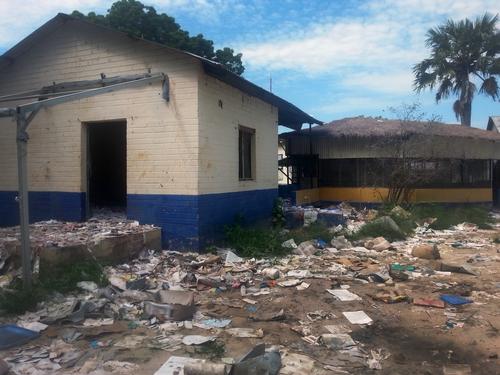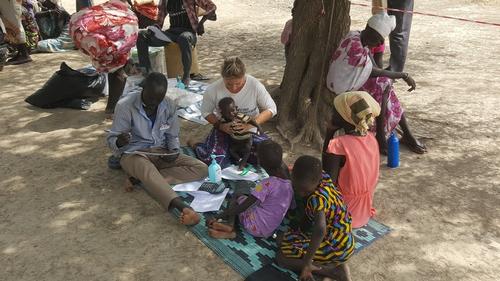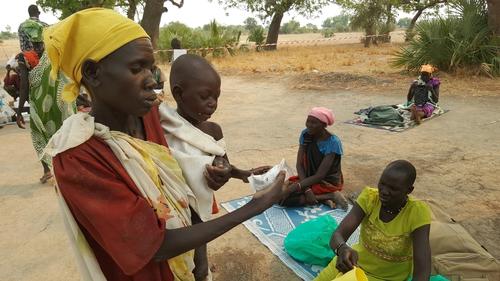Nyajuba (Nya), five years old, was playing with her eight-year-old sister near their home when shooting started. Sensing danger, Nya’s sister picked her up and together they ran to the bush.
As they ran, Nya was hit by a stray bullet on her right arm. Amidst the panic, and fearing she was dead, Nya’s sister dropped her and ran for her life. Nya then lay alone, bleeding profusely, until she eventually fell unconscious.
Nya spent two nights in the bush alone as her grandmother searched the surrounding area for her. When Nya’s grandmother finally found her, her arm was severely damaged and she had lost a lot of blood. Nya’s grandmother then carried her to the nearby clinic, where she was airlifted to Juba.
Dr Hammed Lukonge, MSF deputy medical coordinator explains, “When we received Nyajuba, her arm was in an awful condition. The hand was corroding as the bullet was on one third of the shoulder joint; it was a rotten open fracture. On top of that, she had lost a lot of blood and was severely anaemic.”
A team of MSF medical experts including a trauma surgeon, anesthetists and operating theatre nurses had to quickly organize for an operation. “It was not easy to take a decision; we had to strike a balance between the social impact of the child growing up with one arm or leaving her to lose her life,” says Dr Lukonge.
Following a discussion with Nya’s parents, it was agreed that the MSF team could amputate her arm. In addition, due to her significant loss of blood, six blood donors were mobilized and three pints of blood were collected.
“We performed a full disarticulation of the right arm,” said Dr Lukonge. “Because it was a bullet wound, the arm was left open for around seven days after surgery before it was finally closed.”
Nya’s father told the MSF team “Our daughter would die if it was not for MSF. It is better to see her grow up with one arm than losing her completely”.
Nya is one of the 201 patients who received surgery from MSF following the recent clashes in South Sudan, 54 of which were major operations. MSF also treated over 21,000 people across Juba in mobile clinics set up following the surge in violence.





